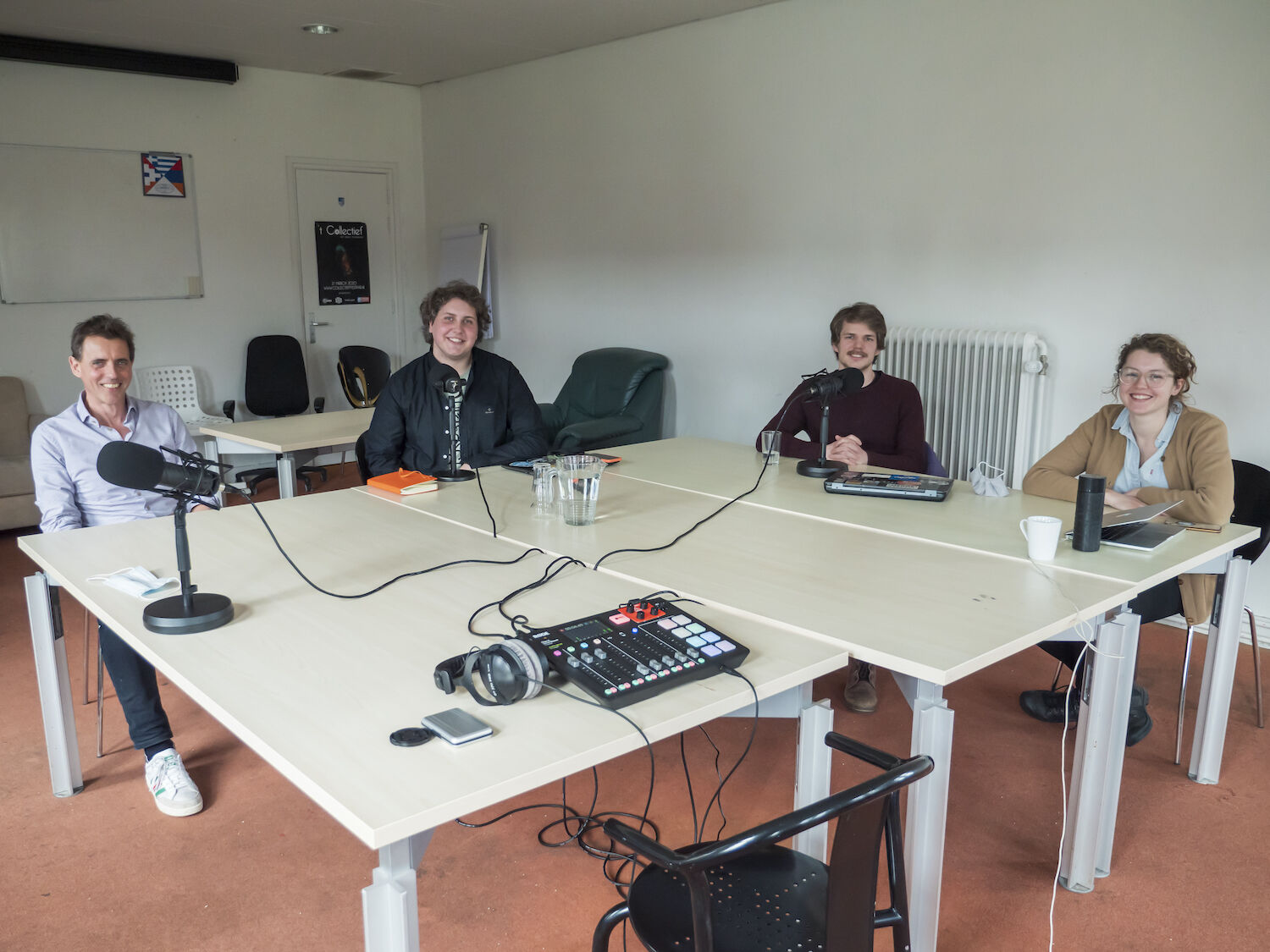Two are already online, four are underway. In the Sustainable Goal-Getters podcast, TU Delft students talk to people who put sustainability into practice.
Arround the studio table are dr Henk Jonkers, Kelvin Saunders, Thomas Arblaster and Tamar Henquet. (Photo: Joey Klene)
The GreenTU Delft student organisation and the Aisec Delft international exchange network discovered a shared interest in the United Nations’ Sustainable Development Goals. The 17 goals include ending poverty and hunger, education, energy, water and sustainable development. “We want to make more people aware of them,” says Tamar Henquet, External Relations Coordinator at GreenTU. But how? They chose a podcast because it “offers the possibility of disseminating information without being long-winded and complex”. Through AISEC’s Koen van de Sanden, ORAS Vice-President Pepijn van Sabben also got involved, and so the English-language series Sustainable Goal-Getters was launched.
In the first episode, to be heard on Spotify, presenter Thomas Arblaster welcomes Dr Henk Jonkers (Faculty CiTG) and architecture student Kelvin Saunders. The theme is Sustainable Development Goal 11: sustainable cities and communities. Jonkers specialises in self-healing concrete and Saunders talks about the TU Delft entry in the Solar Decathlon, the university competition for sustainable building. Both participants get ample speaking time, and the total podcast lasts just over half an hour. According to the makers, an ideal length for in-depth information.
What did you think of it, asks Henquet. Honestly? I found the music at the beginning and end too soft, and I think Thomas sat too close to his microphone. The participants’ English is good enough and as a whole the conversation is entertaining.
Besides the episode on sustainable cities, there is also an online one on responsible food production (goal 12) in which two people from the field share their experiences. One started a circular online supermarket, the other is a specialist in crop breeding. In my opinion, the practical stories are the most fascinating and surprising.

Four more episodes are planned on drinking water, wastewater treatment, mobility and energy. The episodes will be released every few weeks until the summer holidays. And after that? That depends on the reactions. Stop, continue, or set up a separate committee for producing more podcasts. Anything is possible, Henquet says, in the end it is the listener who decides.
Do you have a question or comment about this article?
j.w.wassink@tudelft.nl


Comments are closed.